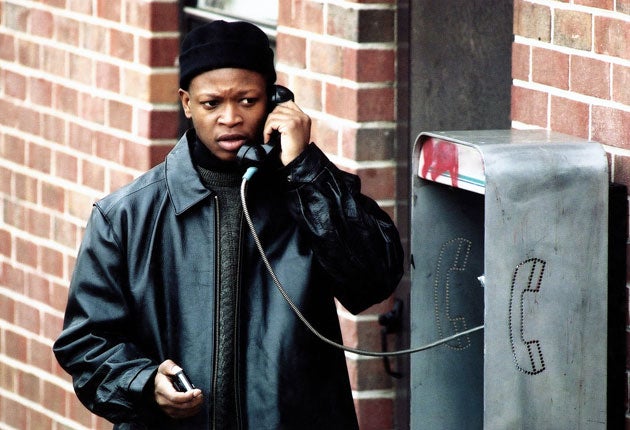Great drama – but can you hear a single word they are saying?
Study will investigate whether viewers are turned off TV because the dialogue is inaudible

Your support helps us to tell the story
From reproductive rights to climate change to Big Tech, The Independent is on the ground when the story is developing. Whether it's investigating the financials of Elon Musk's pro-Trump PAC or producing our latest documentary, 'The A Word', which shines a light on the American women fighting for reproductive rights, we know how important it is to parse out the facts from the messaging.
At such a critical moment in US history, we need reporters on the ground. Your donation allows us to keep sending journalists to speak to both sides of the story.
The Independent is trusted by Americans across the entire political spectrum. And unlike many other quality news outlets, we choose not to lock Americans out of our reporting and analysis with paywalls. We believe quality journalism should be available to everyone, paid for by those who can afford it.
Your support makes all the difference.Whether it's the street corner drug-dealing culture of Baltimore, as seen in The Wire, or the Bristol teen life witnessed in episodes of Skins, modern television drama production prides itself on transporting its audience to the very heart of the action. A genre that at first simply introduced a camera to the familiar dramatic procedures of the theatre has evolved with the demand for ever-greater reality, an increasing use of cinema verite, wobbling camera techniques and all-around sound.
The only problem with all this, it seems, is that a sizeable proportion of the audience can no longer hear what's actually being said by the actors.
And the concerns are now so great that Jay Hunt, the controller of BBC1, has agreed to co-operate with a major independent study that will attempt to evaluate how many people find it difficult to discern the basic dialogue in programmes shown on British television.
"There are particular issues with background music that makes certain programmes difficult for older viewers," said Hunt. "It's massively important to that audience and is something we are taking seriously. It's clearly not just a few people that struggle with this, it's a big issue and what the BBC should be doing is listening to audiences."
Although The Wire, which is shown on BBC2, and other productions by the writing team of David Simon and Ed Burns, such as the Iraq war series Generation Kill, have been acclaimed by critics and held up as a model for aspiring programme makers, the lifelike ambient audio makes it hard for some viewers to hear what all the fuss is about.
Others have problems with programmes which deploy music heavily to help give a sense of time to the action, such as the 1950s-based Mad Men, or the BBC's Ashes To Ashes, which is based in the early 1980s and features songs from the likes of The Stranglers, Ultravox and Visage.
The problem does not only relate to television. The increasing use of ambient sound in cinemas, a featurewidely used as a marketing tool, is also ruining the experience for some patrons. John Cleese said recently that he stopped going to the cinema because sound editors were giving too much prominence to sound effects.
"No older person goes (to the movies) any more," he complained. "It's harder for me to hear the dialogue than it was 20 or 30 years ago. Your hearing starts to go in your early 30s and it's hard to pick out the voices from the ambient sound. The problem is that when they [sound editors] mix movies now, they forget that the audiences have not heard the dialogue. They've all heard the dialogue hundreds of times and take it for granted."
Hunt became aware of the sound issue after it was brought to her attention at a conference of Voice of the Listener & Viewer (VLV) last year. Richard Lindley, the chairman of the VLV and a former current affairs presenter on Panorama and at ITN, said the research would establish whether problems with background noise were also being experienced by younger viewers.
"It really does go right across a range of programmes," he said. "Sometimes the background music is so loud that it drowns out what is being said. At other times it's just that the background noise is obtrusive. There is a problem here because producers want things to be realistic. It's quite difficult to say what is acceptable and what isn't; it does need more research. That's why we are so happy Jay Hunt has taken this up."
Lindley says of The Wire: "It's the kind of programme that makes us stop when we say British broadcasting is the best in the world and makes us think that, well, there are one or two other good things. But a lot of people have difficulty in following it because they can't always hear what's being said."
In his view there has been a profound change of production values in recent decades as the demand for realism has increased. "There's a danger that naturalistic filming and production will ignore the fact that important bits of dialogue are going to get lost or not have the impact they should, so that people will not always appreciate the production as they would want to."
Join our commenting forum
Join thought-provoking conversations, follow other Independent readers and see their replies
Comments